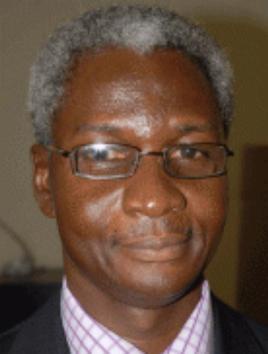
The Auditor-General, Richard Quartey has disclosed that his outfit is unable to meet its target in terms of auditing public financial management institutions annually due to financial constraints.
According to him, due to financial limitations, the Audit Service covers 70 percent of its entire audit annually.
The Auditor-General made this disclosure when he delivered a speech at the Service’s 4th Annual Accountability lectures under the theme, “Public Ethics and Public Trust-Keystones to Good Governance and Accountability” in Accra.
The well-attended event was chaired by Margaret Welbourne, a court of Appeal judge.
The speakers included Nene Abayateye Amegatcher, President of the Ghana Bar Association (GBA), Benjamin Kunbour, Majority leader and a representative of CDD-Ghana.
Inadequate financial resources and the untimely release of funds, he said, have prevented the service from discharging its constitutional mandate of auditing the management of public resources in a timely manner as expected of them by June 30th each year.
Commenting on the challenges facing workers in the service, Mr. Quartey stated that “many times my staff use their own monies from their salaries to pay for their accommodation so that they would not rely on the auditee for any financial or logistic assistance that might impair their independence and judgment. This way they risk bringing the integrity of the product of their work into disrepute.”
The personal expenditure might not be refunded to the staff if the Ministry of Finance does not release budget funds under Compensation of Employees or Goods and Services to them, according to him.
“If this cashless situation persists for too long, I do not know what will happen. We shall be at risk,” he added.
If the constraints are recognized by government and institutions, it would help save money for the country, address the inefficiencies in the public financial management fabric and promote good governance, accountability and public trust, he observed.
Mr. Quartey pointed out that irregularities or acts of financial indiscipline highlighted in the various Auditor-General’s report to Parliament show the extent of deviation from or disregard for the tenets of laws, rules and regulations.
As a result of this, public confidence and public trust in the ability of elected and appointed public officials and employees have been undermined.
The loss of confidence and trust, he noted, has raised ethical issues and manifested itself in the rising number of advocacy.
He noted that other pressure groups are demanding transparency and accountability from public officials and public sector institutions.
Public trust and good governance could be sustained if the Audit Service is provided with organizational independence, sufficient funding, objective staff, and professional standards.
“We appreciate the work and role of the Public Accounts Committee of Parliament (PAC) because it has served to amplify the visibility of the Auditor-General and Audit Service. We shall continue to collaborate with the PAC to secure public trust in Ghana’s financial accountability process.”
Touching on professionalism, GBA President, Nene Amegatcher, asked the Audit service to be gatekeepers of the fiscal policies of Ghana to lead the crusade on rule of law.
He said they could do this by allowing the law to reign supreme through enforcing laid down rules and procedures, ensuring transparency in their work and holding public officials to render account without fear or favour.
Dr. Benjamin Kunbuor, Majority Leader, expressed the hope that public office holders or politicians who are engaged in corrupt activities would change in future.
The Majority leader, who observed that the level of consciousness to hold public holders accountable had heighted, predicted that “office holders in the next 10 years must be courageous persons or clever fools to engage in corrupt activities because they would end up in jail.